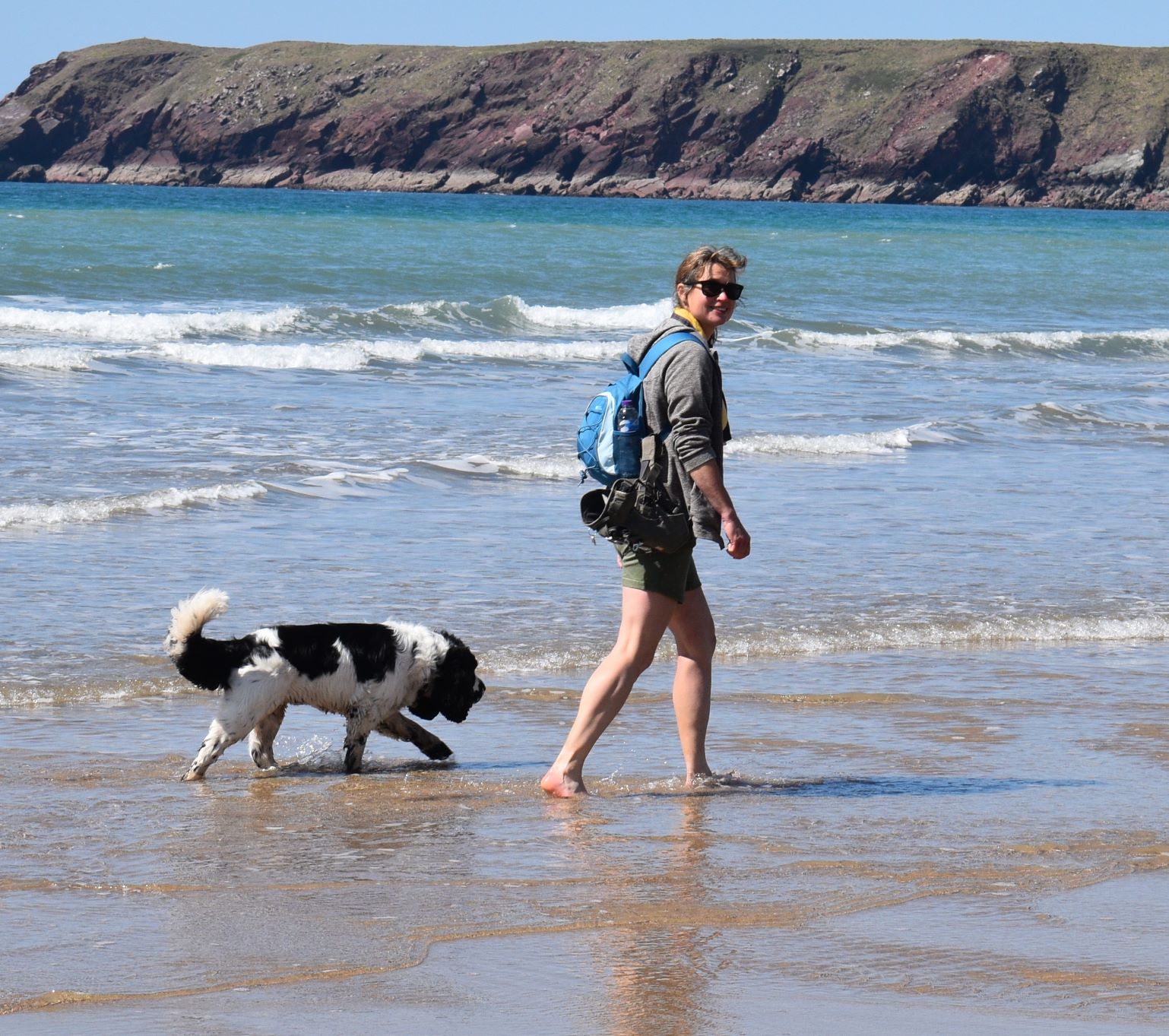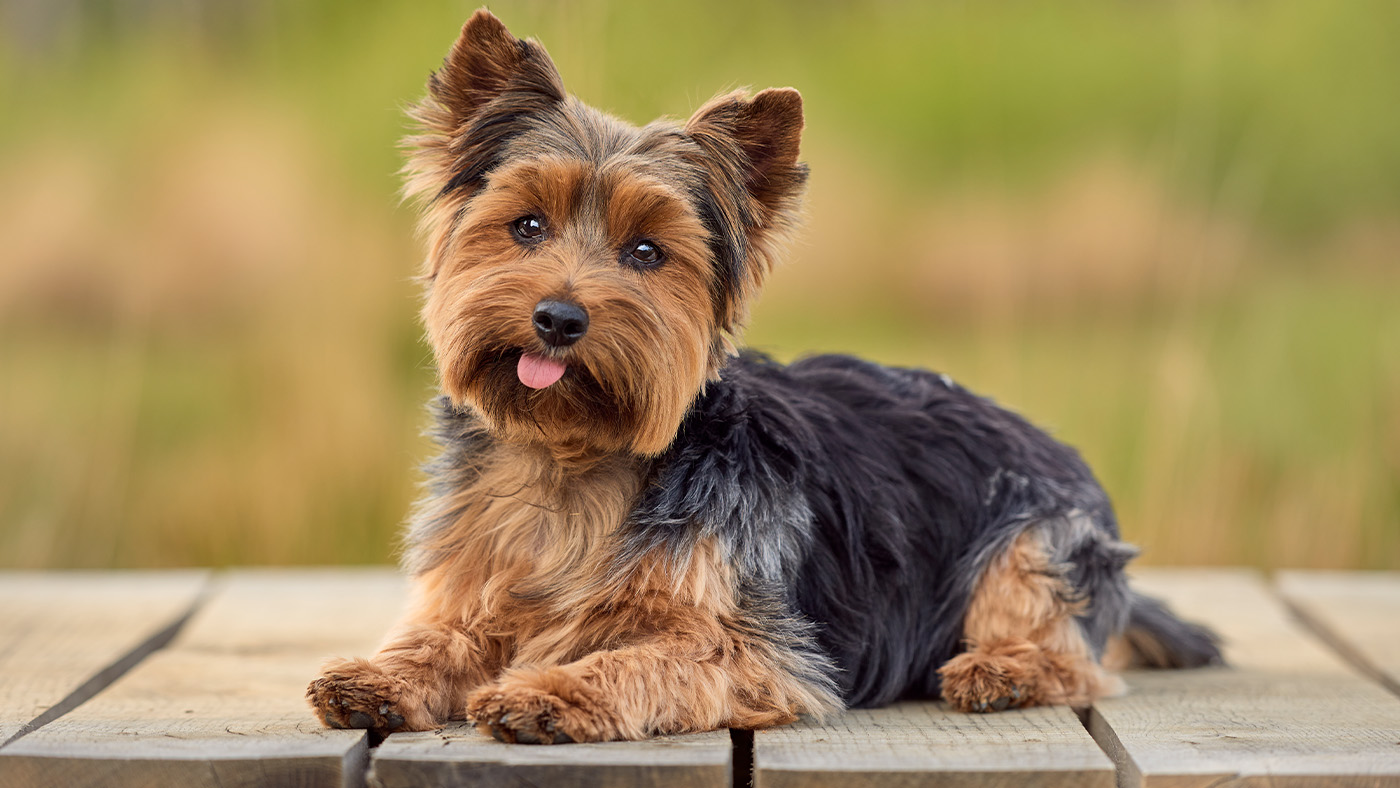Why is my bird biting me? And how to stop it
Ouch! If your pet bird is biting you, it can really hurt. Find out what’s causing this unwanted behavior and how to prevent it
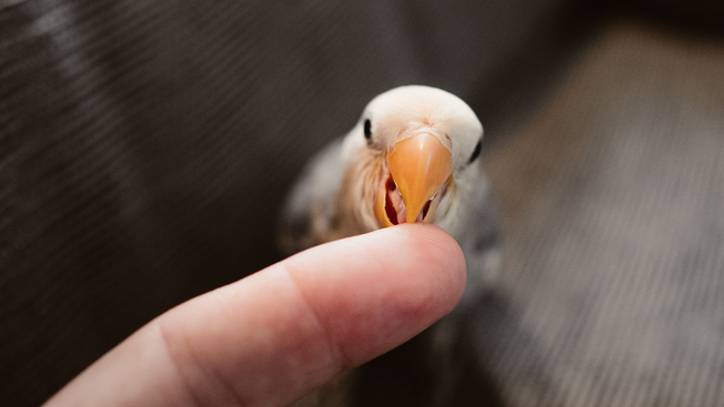
Keeping birds can be a rich and rewarding hobby, providing companionship, interest and entertainment. One of the downsides, though, is bird biting.
Even smaller birds such as canaries are capable of giving a painful nip, while larger birds such as macaws with their strong beaks can really hurt.
In this guide, we’ve put together some reasons why this behavior might be happening along with advice on what to do to stop it.
For more guidance on caring for your bird, see our guides to DIY bird toys, as well as creative enrichment and foraging ideas for parrots.
What does a bird bite feel like?
We all know that carnivores such as dogs and cats can sometimes nip. If you own a parrot or a canary though, the fact that your pet can bite might come as more of a surprise.
The first thing to decide is whether your avian pet is actually biting. Many birds use their beaks in the same way as their feet, for grip and balance.
A bird balanced on your finger might well pinch a little skin when he shifts his weight, but he’s not trying to bite. This type of maneuver is called ‘beaking’, and it can feel slightly strange but shouldn’t be painful or break the skin.
True bites are rare, as unlike cats and dogs birds don’t use biting to assert dominance. A bird bite is usually a very quick nip with a good bit of pressure behind it.
Depending on what size the bird is, such a bite can be painful and cause a small injury. For novice owners, this is normally the easiest way to tell the difference between ‘biting’ and ‘beaking’ as beaking normally causes no damage.
Can you get an infection from a bird bite?
It’s unlikely, but yes you can. With larger birds, the wound may also need stitches or formal treatment. If you get bitten, thoroughly clean and disinfection the wound and monitor it for signs of infection such as swelling or increased pain. Consult a physician if you have any concerns.
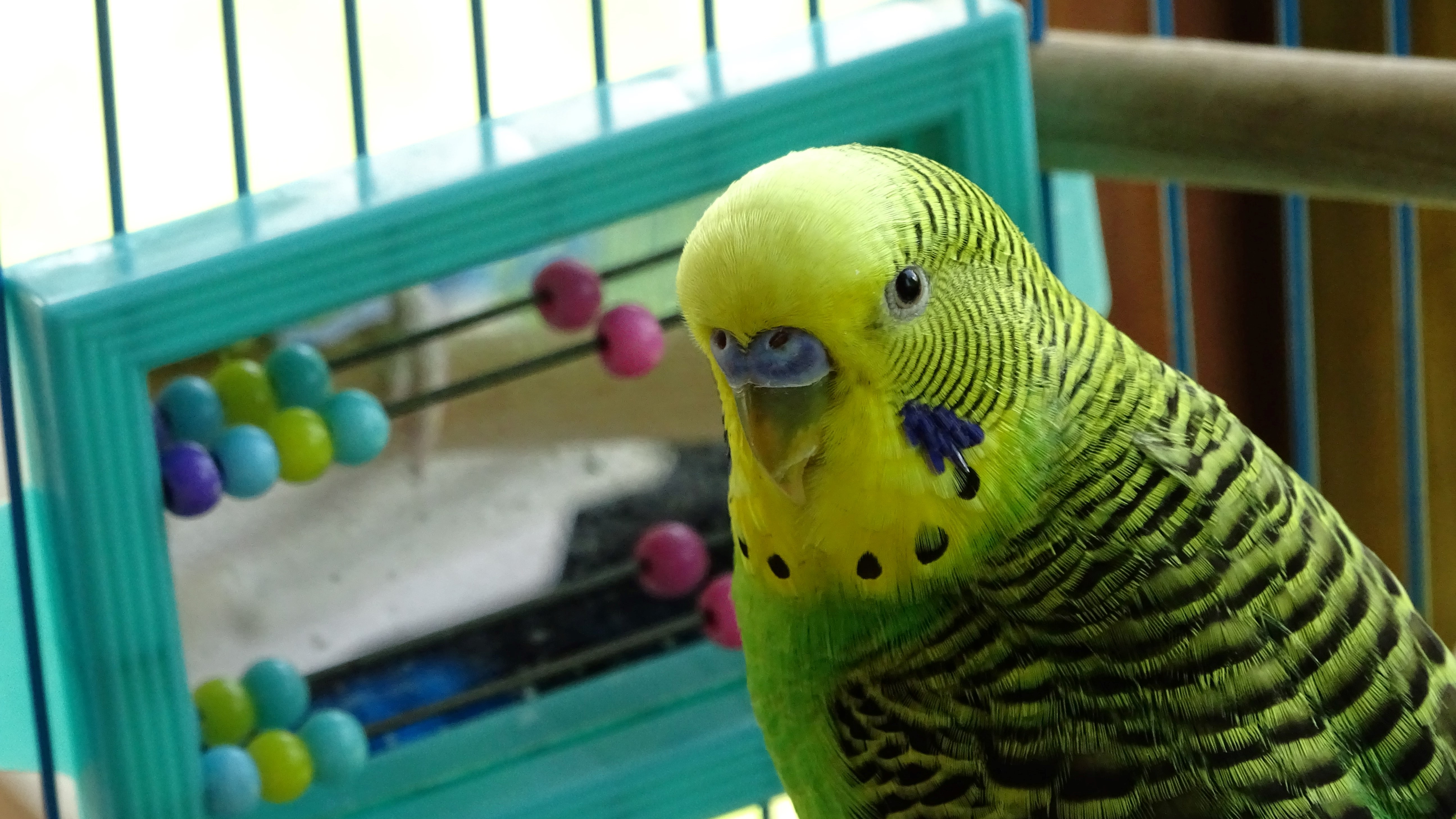
Why is my bird so aggressive?
Chances are he’s not, or at least not on purpose. Birds don’t usually bite aggressively, and will only use it as a form of defense when they feel threatened.
First of all, try and determine whether he’s actually lunging at you to bite or just beaking. True biting is often accompanied by ruffling of the feathers as your feathered friend tries to make himself look bigger and warn you to back away and give him some space.
If this is what’s happening, then he’s feeling cornered and you need to give him some breathing room.
If your avian amigo is beaking or lunging continuously though, you might actually have accidentally taught him to do it. When a bird beaks it can feel a little strange, particularly if he accidentally grabs a sensitive area like an earlobe!
If you let out a high-pitched shriek of surprise, then your bird may interpret this as praise, particularly if he’s a youngster. When training, high-pitched speech should be reserved for positive praise and low-pitched for discouragement.
Why does my bird keep biting or beaking me?
As already discussed, it’s important to differentiate between the two. Beaking is a natural behavior and normally simply means your pet is trying to keep his balance!
Biting is an unwanted form of behavior which will need a little more thought. We’ve rounded up a list of reasons for both behaviors below.
Biting
Actual biting is normally due to one of two reasons. Either your pet is feeling threatened and is literally giving you a warning nip, or at some point he’s been ‘trained’ to think that you actually like it!
As we’ve already seen, making a high-pitched noise when you get bitten could be interpreted as encouragement. It’s much harder for young children to control their responses and they’re more likely to make involuntary high-pitched noises.
If your bird is biting, it’s best not to let children interact with him until you can get the behavior under control.
Beaking
Beaking is when your bird takes hold of you (on the hand, or the clothing) with his beak. He normally does this to test the strength of the perch before he trusts his weight to it.
Another reason is that birds have extremely sensitive tongues, and use them to explore their environment. If you’re wearing a new sweater or an unusual scarf, your avian friend might take hold of it to try and work out what it is.
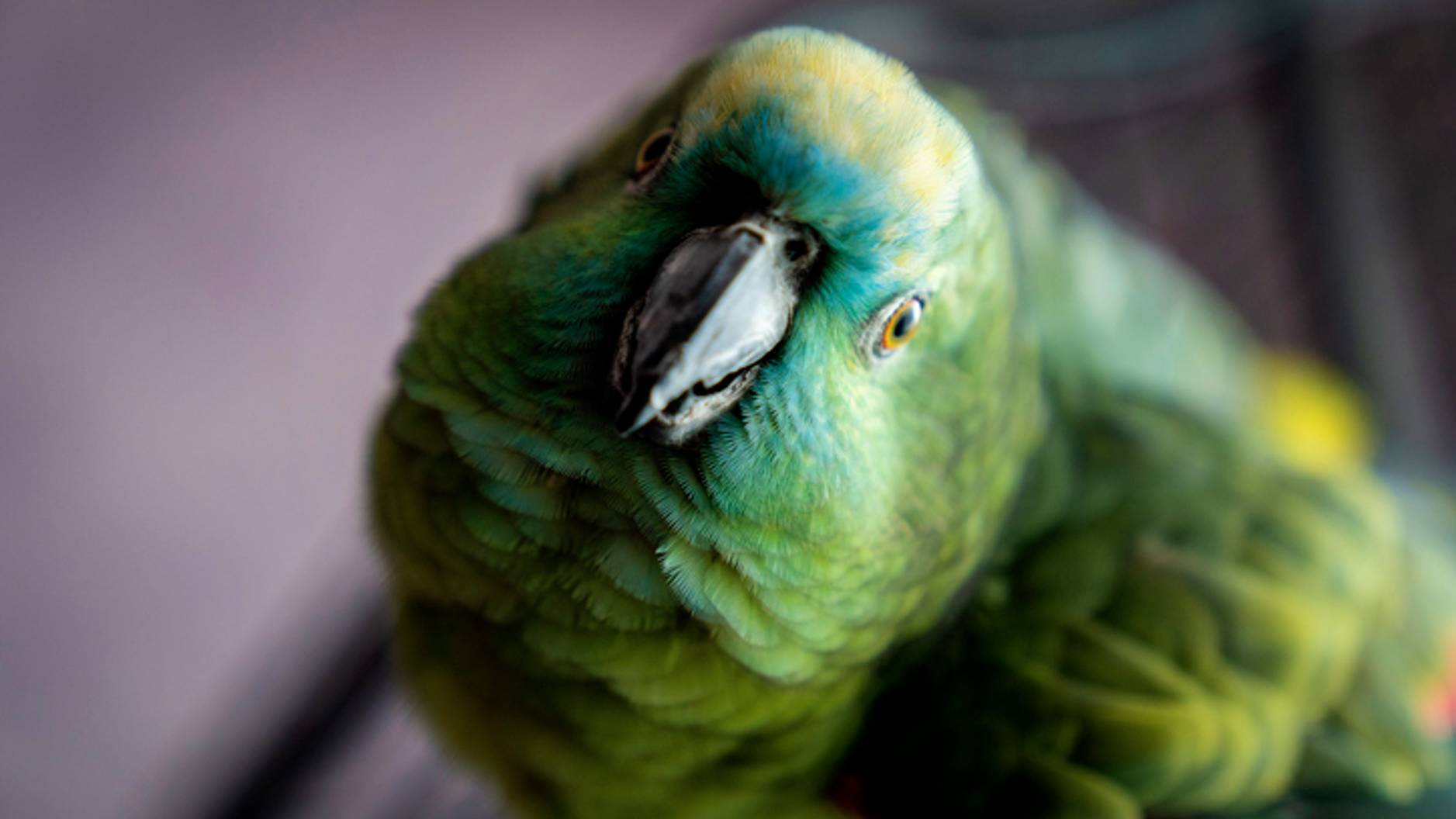
How to stop a bird from biting
No matter how much you love your feathered friend, being bitten is not pleasant! A firm bite from a big bird like a parrot can really hurt, and draw blood.
Here’s what you can do about it:
Consider their environment
Birds normally bite if they’re feeling threatened or anxious. If this behavior is new, then try and work out what’s changed.
Have you introduced a new bird, or made changes to the environment? Once you know what the problem is, you can set about tackling it.
Don’t lose your temper
Being bitten hurts, but the worst thing you can do is lose your temper. Your pet is already feeling upset and threatened, so being shouted at will do nothing to diffuse the situation!
Say ‘no’ in a firm, low-pitched voice. If necessary, leave the room for a few minutes to give you both some time out.
Take short-term precautions
If your bird is nipping at you constantly, adopt some temporary measures until you can get things sort out. Wearing a leather armguard, glove or vest to protect your skin will help prevent further injury.
Work a long-term solution
Most biting is due to fear or uncertainty, and birds are very good at picking up on human emotions. If you’re not feeling confident, he won’t be either! Many bites occur when you’re encouraging your pet to step onto your hand.
It’s vital that you keep your hand firm and steady so that your bird can move onto it confidently. Keep all your movements calm and consistent and gradually he’ll stop feeling threatened. You can also try some of our top games for birds to help build a stronger relationship with your pet.
Many birds – especially parrots – use their beaks all the time to manipulate objects, crack open stubborn food and as a climbing aid.
That means they also need to clean and sharpen them from time to time. Some species, such as African grays, need to chew almost constantly and will need to be provided with appropriate toys rather than using you as a sharpening post.
Should you discipline a bird for biting?
If by ‘discipline’ you mean yell or smack, then absolutely not! Reacting in this way will only make the situation worse. That doesn’t mean that you have to put up with the behavior either, though. Read through our tips above to help you find a long-term solution.
Summary
If you and your feathered friend aren’t seeing eye to eye (or beak to nose), then we hope our guide has helped to put matters on a firmer footing.
Understanding why your bird is biting is crucial to managing and preventing the situation and keeping you both healthy and happy.
PetsRadar Newsletter
Get the best advice, tips and top tech for your beloved Pets
Sara is a freelance journalist and copywriter of many years’ experience with a lifelong love of animals. She’s written for a range of magazines and websites on subjects varying from pet care to travel. A horse rider since the age of five, she’s currently a full time pet slave to horse Blue and gorgeous, goofy English Springer Spaniel Olly. Adorable Olly has a huge sense of adventure and no sense of direction, keeping Sara on her toes.
